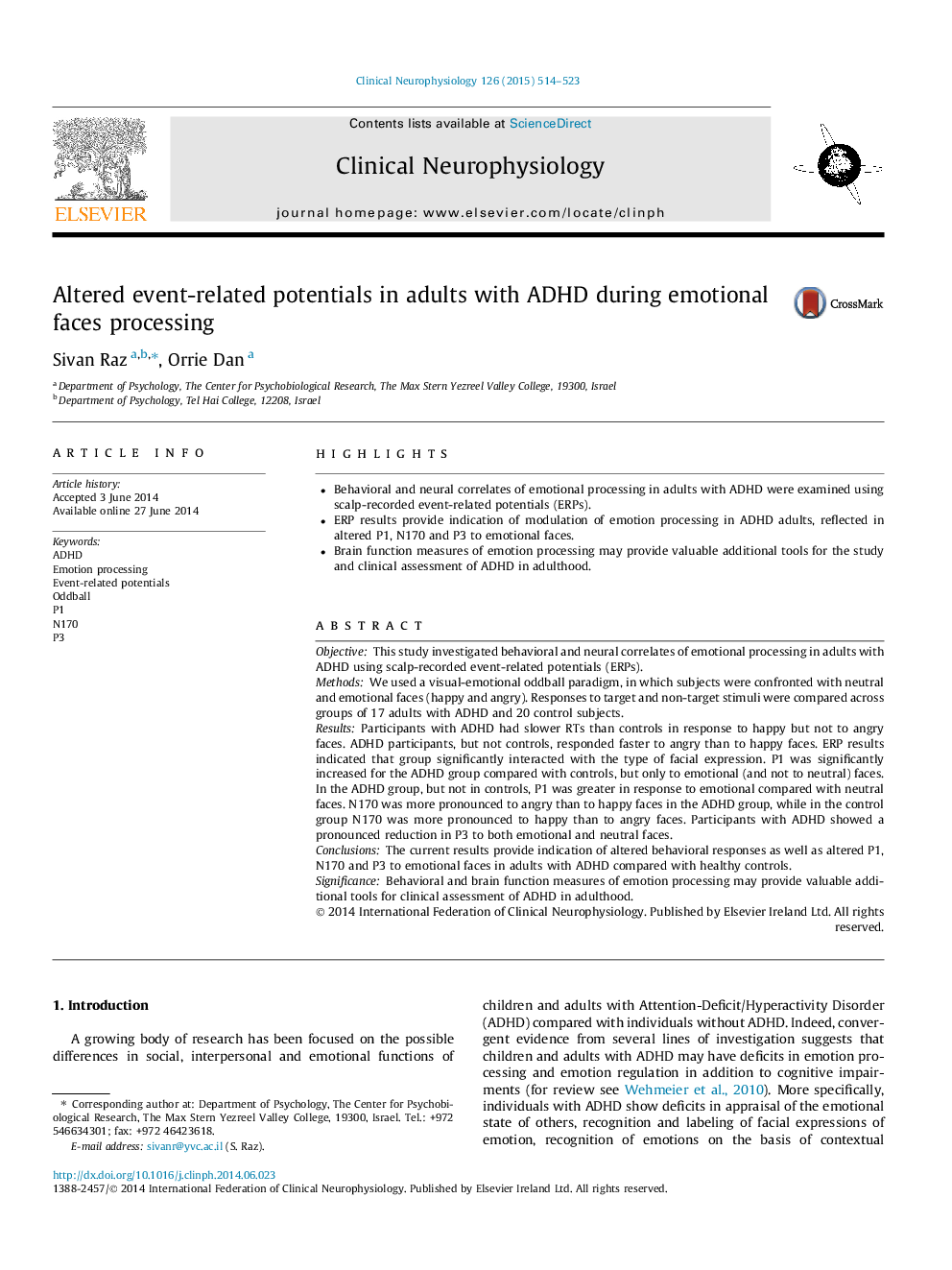| Article ID | Journal | Published Year | Pages | File Type |
|---|---|---|---|---|
| 3043711 | Clinical Neurophysiology | 2015 | 10 Pages |
•Behavioral and neural correlates of emotional processing in adults with ADHD were examined using scalp-recorded event-related potentials (ERPs).•ERP results provide indication of modulation of emotion processing in ADHD adults, reflected in altered P1, N170 and P3 to emotional faces.•Brain function measures of emotion processing may provide valuable additional tools for the study and clinical assessment of ADHD in adulthood.
ObjectiveThis study investigated behavioral and neural correlates of emotional processing in adults with ADHD using scalp-recorded event-related potentials (ERPs).MethodsWe used a visual-emotional oddball paradigm, in which subjects were confronted with neutral and emotional faces (happy and angry). Responses to target and non-target stimuli were compared across groups of 17 adults with ADHD and 20 control subjects.ResultsParticipants with ADHD had slower RTs than controls in response to happy but not to angry faces. ADHD participants, but not controls, responded faster to angry than to happy faces. ERP results indicated that group significantly interacted with the type of facial expression. P1 was significantly increased for the ADHD group compared with controls, but only to emotional (and not to neutral) faces. In the ADHD group, but not in controls, P1 was greater in response to emotional compared with neutral faces. N170 was more pronounced to angry than to happy faces in the ADHD group, while in the control group N170 was more pronounced to happy than to angry faces. Participants with ADHD showed a pronounced reduction in P3 to both emotional and neutral faces.ConclusionsThe current results provide indication of altered behavioral responses as well as altered P1, N170 and P3 to emotional faces in adults with ADHD compared with healthy controls.SignificanceBehavioral and brain function measures of emotion processing may provide valuable additional tools for clinical assessment of ADHD in adulthood.
